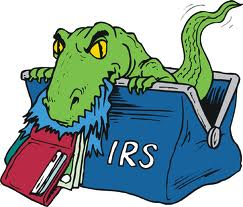Posted by DBOLLC, Fri Apr 6 29, 2012 03:49 AM EDT
10 Tax Tips For Small Business
Because it’s close to filing time we wanted to get something out, like a quick checklist before filing that return. Also, something that provides some ideas for next year.
Here is a quick article that covers the basics for a small business owner.
10 Tax Tips for Small Business Owners
by Guest on February 14, 2011

Are you one of those many small business owners that look at tax time as a sprint?
Meaning, you reluctantly start preparing for your taxes in March or April, but only after your tax preparer leaves several messages bugging you to get them some information.
I believe that preparing for tax time should be a marathon rather than a sprint. If we look at the preparation time for taxes as a year long, little-bit-at-a-time project instead of a two week scramble, we’d be much less stressed when it came to crunch time.
To help you stress less this tax season, and to start preparing for next year’s taxes, I’ve put together a list of ten small business tax tips.
1. Know your deductions.
So what’s deductible? Let’s find out.
Home office deduction:
Figure out the square footage of the space you use primarily for your business and divide it by your total home space to get the percentage of the following expenses that are deductible.
For example, if your office is 100 square feet and your house is 2000 square feet, you can deduct 5% of the following expenses on your tax return:
- Property Taxes
- Mortgage interest or rent
- Homeowner’s insurance
- Utility bills (electric, gas, oil, water, etc.)
- Repairs and maintenance (like a new roof, doors or windows)
- Any other homeowner expenses
Other business deductions:
- Business portion of internet service at home
- Business portion of cell phone use
- Business mileage
- Meals and entertainment with clients and colleagues
- Dues and memberships to business networking clubs
- All travel expenses for conferences
- Online coaching, online mentoring and online learning
All money spent to invest in your business and yourself while you’re running a business is tax deductible.
2. Take all the deductions you’re entitled to reasonably.
In other words, don’t stretch things to say they are business deductions.
For example, if your spouse works in your business with you on a very part time basis, and you go out to eat together every Friday night…don’t take every meal out as a deduction just because you “probably discussed business” every time. You don’t want to become a target for an IRS audit.
3. Keep records to back up your deductions.
When people ask me what files they should keep, I say keep everything that backs up income and expenses on your tax return.
For businesses, that means keeping ALL your business files for as long as the IRS can come back and audit your tax return. Click here to get a free copy of my chart titled “What Records to Keep and For How Long”.
4. Have a well maintained filing system.
Getting ready for taxes is so much easier when all of the information you need is properly filed away and easily accessed. Vow to put together a well organized filing system this year if you don’t already have one in place.
5. Have a well maintained bookkeeping system.
Keep track of all of your invoices, deposits, checks, bills, bank reconciliations, credit card receipts and inventory on a weekly basis instead of handing over a shoebox to your accountant at the end of the year. QuickBooks is an awesome way to do this.
Sure, record keeping takes time, but I guarantee that you will get more tax deductions if you keep track of things all year long rather than trying to remember everything at the end of the year.
6. Make time in your weekly and monthly schedule for recordkeeping and filing.
As I mentioned above, entering checks and receipts into an accounting system, filing your paperwork, and reviewing your business financial statements needs to be done on an ongoing basis. Even 10 minutes a day can make a huge difference in how well your office is organized.
And, doing a monthly review of your Profit and Loss and Balance Sheet statements should reveal any glaring mistakes that can be corrected now instead of next tax time.
7. Reconcile your bank statements monthly throughout the year
Bank statements are the most reliable numbers when questioning whether or not something has been received or paid during the year.
If you reconcile them every month, you’ll know that you’ve remembered to enter a majority of your expenses and income correctly for those months. Keep these up to date and your year end tax preparation will go a lot smoother.
8. Review your tax return yourself even after you have it prepared by a professional.
Make sure you understand what’s on your tax return. After all, you’re signing your name at the bottom of it.
9. Clean out your files and throw away unnecessary papers.
I try to do this more than once a year myself, but after your tax return is done is the perfect time to decide what’s not really needed anymore.
Take the necessary tax backup and file it in several file folders marked with the tax year on them. Then, throw out the oldest year’s tax files.
10. Make your recordkeeping and filing system easier with technology.
Technology can make tax time easy for you.
For just a few of the ways technology does this, check out QuickBooks for your bookkeeping, Shoeboxed.com for keeping your receipts electronically, and the Trip Cubby iPhone app to track your business mileage.




